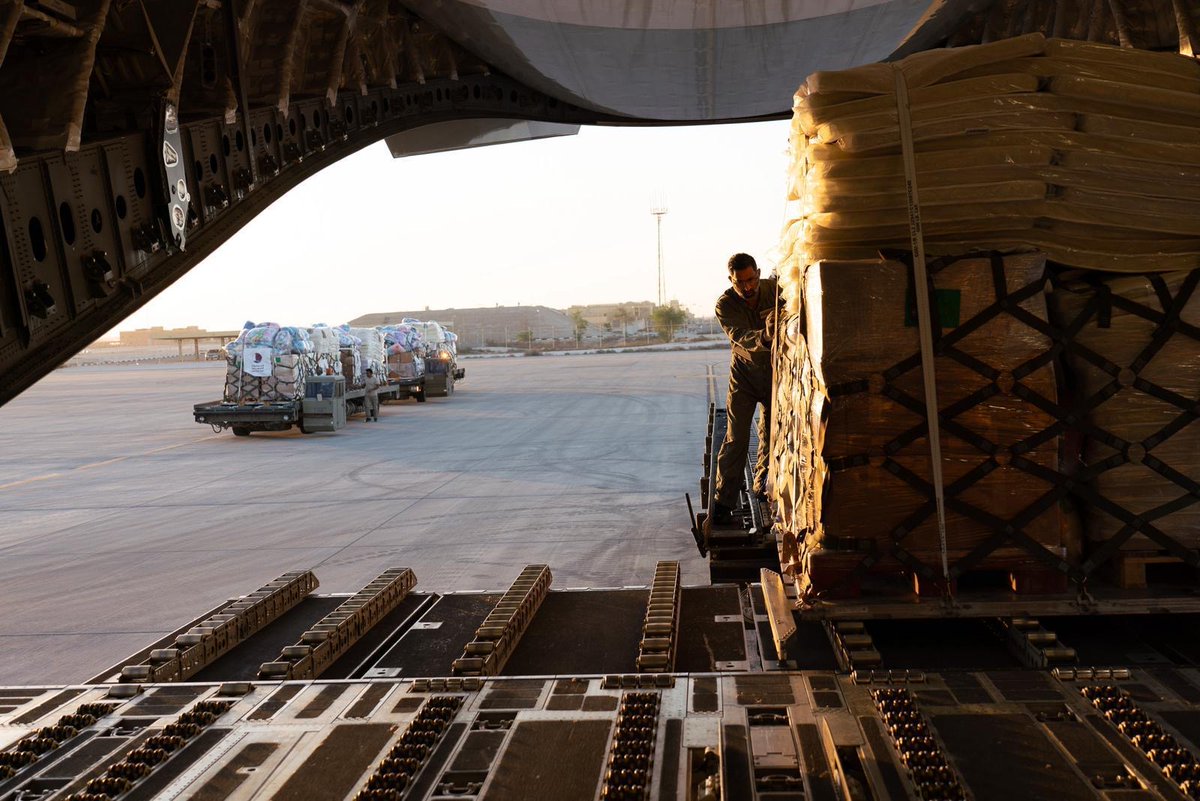The latest dispatch increases the total aid delivered to 1,362 tonnes, across 42 jets.
Three aircraft from the Qatar Armed Forces landed in El Arish, Egypt, on Sunday, awaiting entry to the besieged Gaza Strip.
The planes, loaded with 116 tonnes of essential supplies including food and medical provisions, were sent by the Qatar Fund for Development (QFFD) and the Qatar Red Crescent Society (QRCS).
The ongoing Israeli genocide has killed at least 17,700 Palestinian lives, predominantly women and children, and has left nearly 49,000 wounded.
Many are still trapped under the rubble. The brief respite during a recent seven-day truce demonstrated the possibility of successful aid delivery under the right conditions.
Currently, aid is trickling into Gaza through the Rafah crossing from Egypt, a route ill-suited for handling large-scale deliveries.
This has led to significant delays, with trucks having to navigate a cumbersome 40km detour via Egypt’s border with Israel, creating bottlenecks and further complications.
The World Food Programme (WFP) has raised the alarm about the dire situation in Gaza, where the community is on the brink of a severe supply crisis, exacerbated by escalating Israeli attacks.
Carl Skau, WFP’s Deputy Director, expressed deep concern on X (formerly known as Twitter) following his recent visit to the enclave. “There’s not enough food. People are starving,” Skau stated, highlighting the urgency of the situation.
Despite WFP’s efforts in reaching over a million people, Skau emphasized the critical need for a humanitarian ceasefire to allow for the steady flow of supplies.
“The situation is untenable. We need to get our supplies in,” he urged. The lack of food and fuel, compounded by continuous safety threats, renders humanitarian efforts nearly impossible, as Skau pointed out in a WFP statement.
Gaza, under the strain of nonstop Israeli bombardment, faces overcrowding in camps and emergency shelters, with the constant backdrop of bombing raids.
Gazans are living in unhealthy conditions, lacking sufficient food and facing the harshness of winter.
This humanitarian crisis follows the United States’ veto of a UN Security Council resolution calling for a ceasefire, a decision that has drawn widespread criticism from humanitarian organizations.
UN Secretary-General Antonio Guterres invoked Article 99 of the UN charter, unused for decades, to trigger the vote. “The people of Gaza are looking into the abyss,” Guterres stated, highlighting the gravity of the situation.
The United Nations has called for an unprecedented $46bn in funding for 2024, as it races to meet the escalating global humanitarian needs.
The UN Office for the Coordination of Humanitarian Affairs (OCHA) in its Global Humanitarian Overview for 2024, cited critical situations in Palestinian territories, Sudan, and Ukraine. However, due to funding shortages, aid will likely reach just over half of the nearly 300 million people in need next year.







